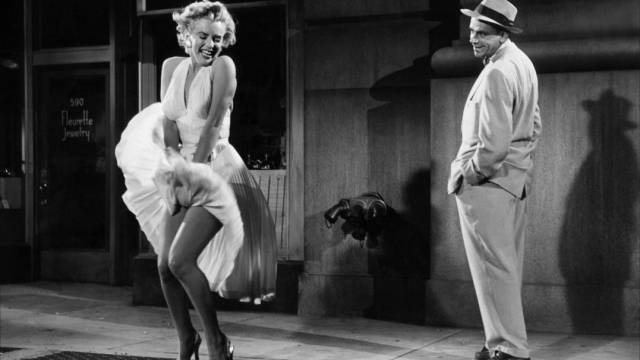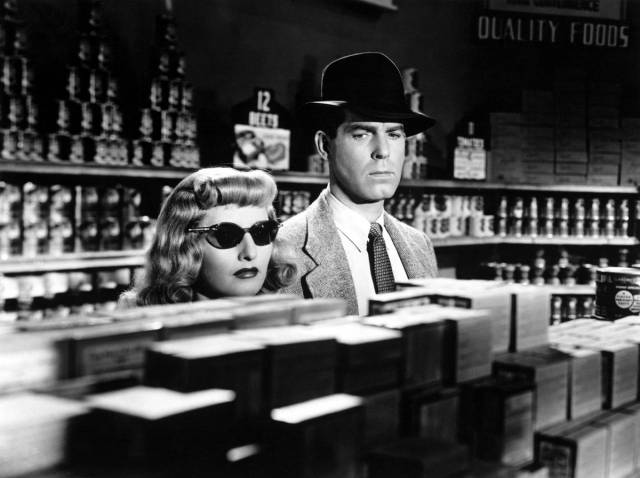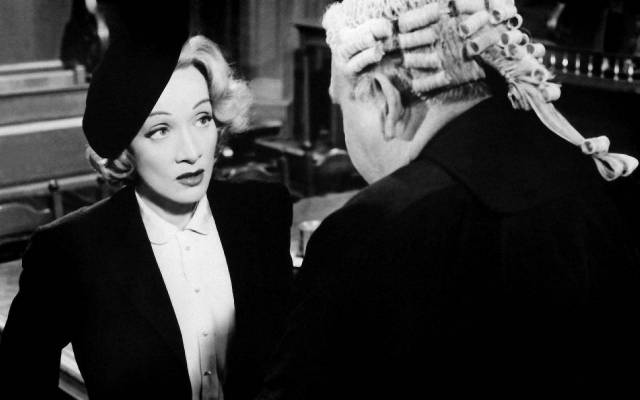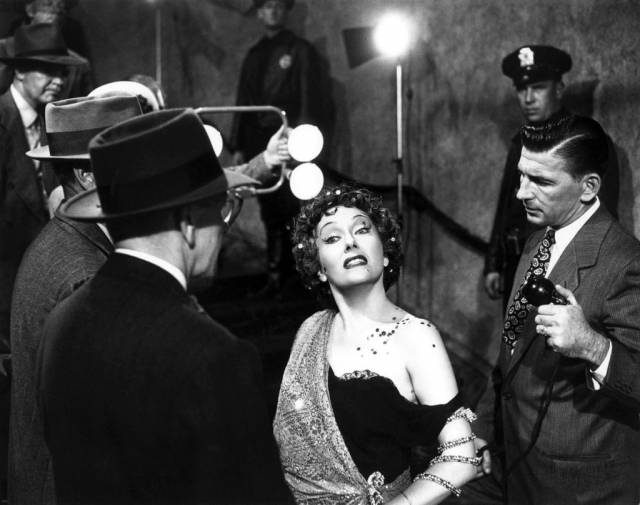
Billy Wilder accrued 78 writing credits and 23 directing credits in a career spanning more than seven decades. His career began in Germany where in 1929 he wrote his first screenplay, Hell of a Reporter. A mere five years later he directed his first film, Mauvaise Graine. He then moved to Hollywood and spent the first part of his career there writing screenplays (including co-writing the 1939 classic Ninotchka), before finally, in 1942, directing his first American film, The Major and the Minor. Billy Wilder’s oeuvre features great work made to stand the test of time; he became known for the quotability of his dialogues (his screenplays became his forte), his dark sense of humor and his groundbreaking approach to taboo issues like alcoholism, infidelity and homosexuality. Modern viewers could blindly pick any one of Wilder’s films and would almost be guaranteed to have an enjoyable watching experience.
These five are just the cream of the crop:
 5. The Seven Year Itch (1955)- It’s summertime in New York and it’s hot! To beat the heat, Tom Ewell (Richard Sherman) sends this wife and son away to seashore while he stays behind to work. All the other husbands use this solo time to act like bachelors, but Tom swears he will behave by staying home to read, and enjoy his air conditioning. But then a young girl (Marilyn Monroe) moves in upstairs, and before the night is over Tom has invited the girl down for a drink. She ends up spending much of her time with him, but mostly just to use his air conditioning; he’s got one in every room. Monroe is the perfect ‘Girl,’ bursting with sensuality, she is temptation incarnate. As Tom goes crazy thinking how he is sinning against his wife, Monroe’s innocent portrayal makes us realize that all the sins are just in his head. Going further with her, only in his dreams...
5. The Seven Year Itch (1955)- It’s summertime in New York and it’s hot! To beat the heat, Tom Ewell (Richard Sherman) sends this wife and son away to seashore while he stays behind to work. All the other husbands use this solo time to act like bachelors, but Tom swears he will behave by staying home to read, and enjoy his air conditioning. But then a young girl (Marilyn Monroe) moves in upstairs, and before the night is over Tom has invited the girl down for a drink. She ends up spending much of her time with him, but mostly just to use his air conditioning; he’s got one in every room. Monroe is the perfect ‘Girl,’ bursting with sensuality, she is temptation incarnate. As Tom goes crazy thinking how he is sinning against his wife, Monroe’s innocent portrayal makes us realize that all the sins are just in his head. Going further with her, only in his dreams...
 4. The Apartment (1960) - Winner of 5 Oscars, including Best Picture, Best Director, and Best Screenplay, this classic tells the story of C.C. Baxter (Jack Lemmon) an office worker who involuntarily gets dragged into a shifty arrangement: through loaning out his apartment to his bosses, he is potentially jump-starting his career. This film deals directly with the drudgery of being a worker cog in the American corporate machine, but Lemmon's Baxter turns this serious criticism of commerce and power into something playful. Part drama, part comedy, The Apartment builds and builds, until Jack is ultimately forced to choose between his dream job, and his dream love (Shirley MacLaine).
4. The Apartment (1960) - Winner of 5 Oscars, including Best Picture, Best Director, and Best Screenplay, this classic tells the story of C.C. Baxter (Jack Lemmon) an office worker who involuntarily gets dragged into a shifty arrangement: through loaning out his apartment to his bosses, he is potentially jump-starting his career. This film deals directly with the drudgery of being a worker cog in the American corporate machine, but Lemmon's Baxter turns this serious criticism of commerce and power into something playful. Part drama, part comedy, The Apartment builds and builds, until Jack is ultimately forced to choose between his dream job, and his dream love (Shirley MacLaine).
 3. Double Indemnity (1944) - Often credited as the most important "film noir", this film showcases Wilder’s writing at its darkest. In most of Wilder's scripts the male lead gets involved in dubious business because of a female character. Wilder loved playing with variations of the femme fatale, we even see an inverted, comic version of this in The Seven Year Itch, but in Double Indemnity she is pure malice. Double Indemnity makes the list thanks to the terrific performances by stars Fred MacMurray and Barbara Stanwyck, who through their flair, make the true complexity of the central murder plot, appear sinfully simple.
3. Double Indemnity (1944) - Often credited as the most important "film noir", this film showcases Wilder’s writing at its darkest. In most of Wilder's scripts the male lead gets involved in dubious business because of a female character. Wilder loved playing with variations of the femme fatale, we even see an inverted, comic version of this in The Seven Year Itch, but in Double Indemnity she is pure malice. Double Indemnity makes the list thanks to the terrific performances by stars Fred MacMurray and Barbara Stanwyck, who through their flair, make the true complexity of the central murder plot, appear sinfully simple.
 2. Witness for the Prosecution (1957) -Because of his age and ailing health, Barrister Sir Wilfrid Robarts (Charles Laughton) is on the edge of retirement, until Leonard Vole appears (Tyrone Power), well-dressed, smooth talking, Vole’s claims about his past just don’t seem to add up, but when the remarkable Christine Vole (Marlene Dietrich) enters the scene, her allure tips the wavering Barrister Robarts back into the court room for one last case. Terrific courtroom scenes, full of great dialogue and action are the backbone of the film. Wilder’s scriptwriting is on its game here. He throws the audience so many curve-balls that we never know what's coming next. The film’s only weakness is that the ending feels rushed. The rollercoaster of a court battle, along with the shocking, even though too brief twist-of-an-ending, plus the excellent performances by the entire cast, make this one a must see.
2. Witness for the Prosecution (1957) -Because of his age and ailing health, Barrister Sir Wilfrid Robarts (Charles Laughton) is on the edge of retirement, until Leonard Vole appears (Tyrone Power), well-dressed, smooth talking, Vole’s claims about his past just don’t seem to add up, but when the remarkable Christine Vole (Marlene Dietrich) enters the scene, her allure tips the wavering Barrister Robarts back into the court room for one last case. Terrific courtroom scenes, full of great dialogue and action are the backbone of the film. Wilder’s scriptwriting is on its game here. He throws the audience so many curve-balls that we never know what's coming next. The film’s only weakness is that the ending feels rushed. The rollercoaster of a court battle, along with the shocking, even though too brief twist-of-an-ending, plus the excellent performances by the entire cast, make this one a must see.
 1. Sunset Blvd. (1950) - Through a series of coincidences, out-of-work writer Joe Gillis (William Holden) pairs up with former silent-film star Norma Desmond (Gloria Swanson). She lives in a disaster of a mansion. The exterior is totally decrepit, while the inside, a shrine to herself, is done up with ridiculous opulence—the great set designs are a no doubt a representation of her chaotic mental issues. The unemployed Joe moves into the Xanadu-like mansion, and over time becomes accustomed to the boy-toy lifestyle. William Holden’s Joe, paired with Swanson’s maniacal Desmond, parading themselves thought the streets of Los Angeles accompanied by the terrific Erich Von Stroheim as Max, Desmond’s one-time husband turned servant/chauffeur. It is scenes like this that make Sunset Blvd. number one. The whole things is done with such seriousness that it makes the film hard to classify; it opens with a murder, but it’s not a mystery; it’s hilarious, but it’s not a comedy; it’s too ridiculous to be a serious drama. Wilder combines these styles, succeeding wonderfully at fusing them into single picture.
1. Sunset Blvd. (1950) - Through a series of coincidences, out-of-work writer Joe Gillis (William Holden) pairs up with former silent-film star Norma Desmond (Gloria Swanson). She lives in a disaster of a mansion. The exterior is totally decrepit, while the inside, a shrine to herself, is done up with ridiculous opulence—the great set designs are a no doubt a representation of her chaotic mental issues. The unemployed Joe moves into the Xanadu-like mansion, and over time becomes accustomed to the boy-toy lifestyle. William Holden’s Joe, paired with Swanson’s maniacal Desmond, parading themselves thought the streets of Los Angeles accompanied by the terrific Erich Von Stroheim as Max, Desmond’s one-time husband turned servant/chauffeur. It is scenes like this that make Sunset Blvd. number one. The whole things is done with such seriousness that it makes the film hard to classify; it opens with a murder, but it’s not a mystery; it’s hilarious, but it’s not a comedy; it’s too ridiculous to be a serious drama. Wilder combines these styles, succeeding wonderfully at fusing them into single picture.